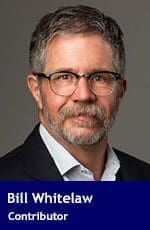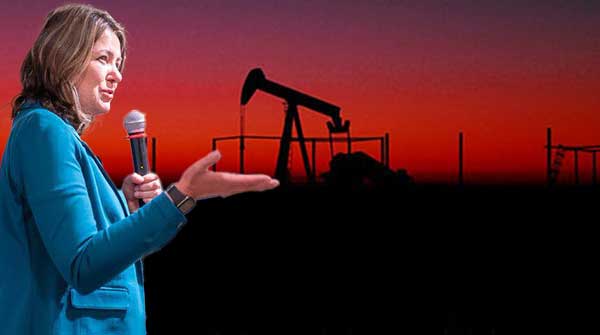Where are the wind players, the solar players, the geothermal players, the First Nation communities, the young professionals?
 So close. Yet so far away.
So close. Yet so far away.
That’s the paradox in Alberta premier Danielle Smith’s latest advisory pronouncement, via which five oilpatch veterans are charged with a weighty task: mapping Alberta’s energy future. Whew. That’s a big ask, especially when the resulting report is due in little more than four months.
A whole energy future. In four months. Drum roll, please, for the superheroes who will produce it.
Like a lot of UCP (United Conservative Party) pronouncements, though, it is big on boomph but little on oomph. Translation: the advisory process is thin on detail but thick on opacity. There’s some stuff about consulting with ministries and agencies and all that, but no real clues as to precise purpose.
But hey, a premier thinking about election dynamics needs a regular flow of soundbites to feed a voracious media appetite – especially soundbites she thinks ring true to at least some Albertans. And let’s not forget her current pugilistic fixation with Ottawa, not only on matters of energy. That’s a machine that needs constant feeding.
 |
| Related Stories |
| IEA raises global oil demand forecast again
|
| Alberta premier’s latest scheme blares BOONDOGGLE (ALL CAPS)
|
| Just Transition comes with big costs
|
Albertans can only hope the panel isn’t caught like the hapless boxing ref who goes down for the count because he stepped in between two boxers who have no clue how to fight. Let’s hope it actually gets to do the work it has been asked to tackle and not be thrown as a sacrificial cow under the Just Transition bus.
Does Alberta need a blueprint for its energy future? Indeed, it does. But not one borne of electoral desperation.
Yet before we glide down cynicism’s slippery slope, let’s remember the advice about babies and bathwater.
There’s something here to work with.
First, the panel: David Yager. Hal Kvisle. Bob Curran. Carey Arnett. Phil Hodge.
These four men and one woman are both sharp and smart – those attributes are not always the same. They’re steeped in the energy business. It’s in their veins. Their collective CV is as impressive as their individual resumes. They’re passionate and live and breathe the sector’s importance to Albertans – and to Canadians. That duality is an important nuance because Alberta is only fighting in the myopia of the UCP mindset. Panel members have thrived at the industry’s peaks and survived during its troughs.
One important correction: David Yager is much more than an oilpatch writer (as referred to in the mainstream media). He’s the closest thing we have in this sector to a Renaissance Man (besides Peter Tertzakian) in terms of the breadth and depth of his knowledge and understanding of how things work. He’s a commentator, executive, entrepreneur, and advocate all rolled into one. Yager has been there. Done that. Been there again – and done that again. He’s the ideal lead for this panel.
Yager and his team have plenty of contributory runway left. But that run won’t extend much past 2030 or beyond – which is exactly the future for which the premier wants a blueprint. There’s tremendous knowledge capital locked in their grey cells that needs to be “redeposited” into another generation of leaders.
So, consider this perspective: as capable as they are, Yager et al. also represent another era. It is 80 percent male. And in many ways, the panel is trapped within the stratigraphic caprock confines of downtown Cowtown’s echo chamber.
But to the degree that the past is the best predictor of the future, the panel’s extant composition is its ideal foundation.
But a foundation only.
Because Alberta’s energy future should not only look like the best of its past but also the best of its future. Much legacy and hubristic thinking needs to be jettisoned from days gone by, so the panel needs to consider how to strike that balance.
Second: the process. Once again, the apprentice premier has failed to show the savviness she has displayed in previous parts of her life. She’s coming close … but close only counts in horseshoes and hand grenades, and it can be a death sentence in politics. Instead, her actions seem driven by dogmatism fixated on politicking for an Alberta that doesn’t exist anymore.
Imagine, then, if the panel announcement headline had read something like this:
“Team of experienced veterans tapped to lead inter-generational and cross-disciplinary rural-urban panel to help map Alberta’s energy future, including key indigenous leaders.”
Alas, that wasn’t the headline.
Had Smith and her advisors been a little more thoughtful, they would have announced a panel composed of the old guard, new guard and all the guards in between.
The panel’s composition could have recognized the other foundational components of Alberta’s energy future which are alive, well and evolving – with much of the “old oil and gas guard” doing the driving.
The wind players. The solar players. The geothermal players. The First Nations communities already mapping out their own energy futures. The rural towns and counties defining specific energy blueprints for their future. The cleantech innovators and decarbonization visionaries. The sustainability professionals. The industry associations pivoting to ensure oil and gas has a viable future by valorizing and encouraging their own transition efforts. The post-secondary institutions doing phenomenal program pivots.
Most importantly, where are the myriad young professionals who will actually be doing the energy blueprint heavy lifting in 2032? In 2038? In 2044?
In that sense, the panel is a mere shadow of what it ought to be; locking it down the way it is may actually further cast the sector into more disrepute.
The oil and gas industry will be foundational to the province’s energy future for decades. No one who really understands how energy systems work disputes that. But other energy edifices will be erected on that foundation – as they are already being constructed. Alberta’s energy future will deliver the goods as a system of systems working collaboratively to deliver environmental performance, economic prosperity, stability and security of supply.
To the degree the panel’s efforts will focus on petroleum, it must consider two key dynamics: the sector’s ongoing terms and conditions of its “permission to produce” and “conditions of combustion.”
That’s what will help Alberta earn the provincial and national energy cred it so desperately craves.
But imagine what a panel of 20 passionate Albertans who represent the true composition of the energy present and energy future might do in terms of consultation and analysis. The mind boggles at what could be a plan to show the world … rather than something that may or may not meet the premier’s whims of the moment.
Bill Whitelaw is the Managing Director of Strategy & Sustainability with Geologic Systems.
For interview requests, click here.
The opinions expressed by our columnists and contributors are theirs alone and do not inherently or expressly reflect the views of our publication.
© Troy Media
Troy Media is an editorial content provider to media outlets and its own hosted community news outlets across Canada.

